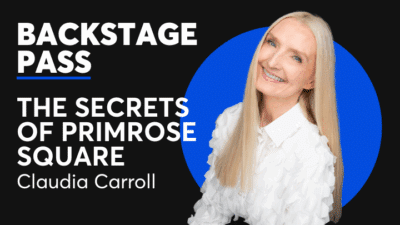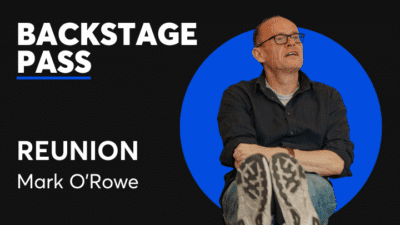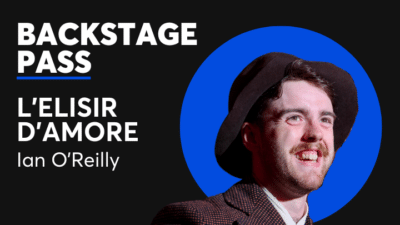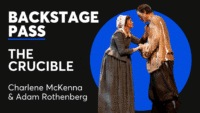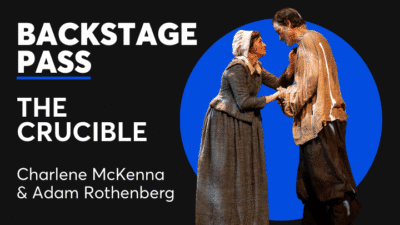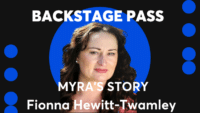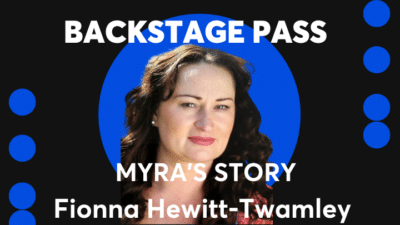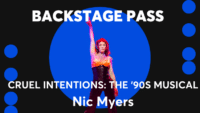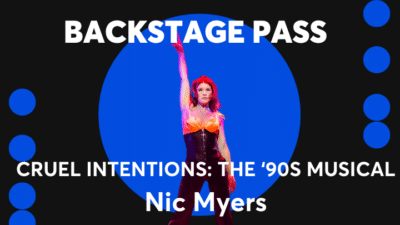Theatre
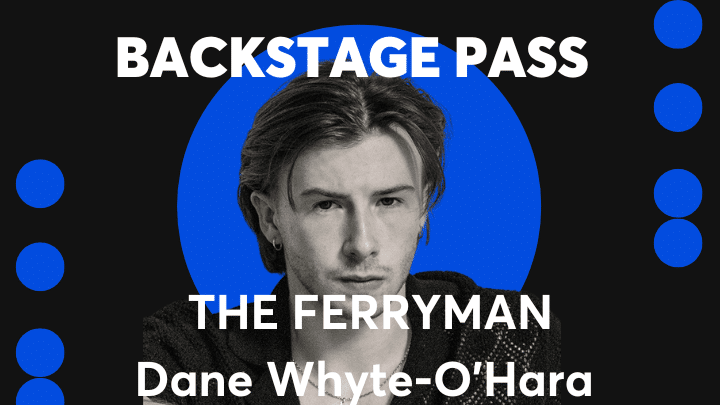
Interview
Backstage Pass: Dane Whyte-O’Hara – The Ferryman
Jez Butterworth's multi-award winning play The Ferryman has come to Ireland for the first time following phenomenal Broadway and West End runs.
Set in Armagh in 1981, the play follows the Carney family preparing for the annual harvest. At the same time, IRA hunger strikers are in the Maze prison and a body has been found in a bog near the border. An unexpected visitor ensures none of their lives will ever be the same.
We caught up with actor Dane Whyte-O’Hara to discuss the weight of such an important story, getting into character and troublesome geese.
You had an unusual introduction into acting, could you tell us a bit about that?
Well, it’s very funny story, actually. My mam was on Facebook and saw that Louise Kiely casting was looking for someone with martial arts experience for a series called Darklands. They were looking for a lead role, but I didn’t think it was going to get the lead role. So I thought “I’m going to get a few bob for the summer, and I’m going to send in some videos of me doing some stuff”. And I did, and they asked me to keep auditioning, and then eventually landed the lead role. It was a bit mad all the same.
This is your first stage role, how did you find it compared to screen?
You know what, it’s funny, because a lot of people say how it’s really foreign to a screen actor [to do] theatre or vice versa, but I’d say it’s more different. I’ve definitely found [that] it’s a great experience, and it was something that, funnily enough, I said I was never actually going to do. And now that I’ve gone into it, and I don’t know if it’s just because of the company or because of the material, but I’ve realised it’s bit me a little bit. So I’d say I’ll probably keep it up alright.
The Ferryman is nothing short of a contemporary classic and has won almost every award possible it seems. How can you describe getting the opportunity to work on such a lauded play?
It’s a great honour to be honest. It was only for the fact that the material was so good that I decided to do it, and take up such a pivotal role. It’s a role [where] everything forms around it in some way as we come to the end. So it was a big responsibility and it really enticed me. Yeah, it’s just, it’s a nice responsibility to have, I would say.
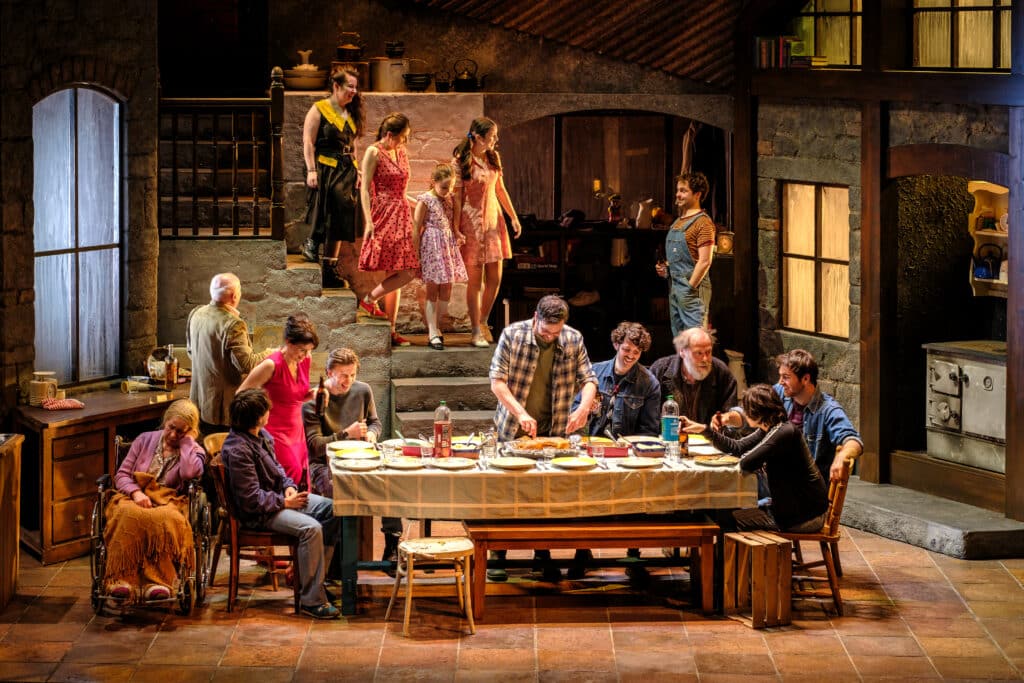
Andrew Flynn has taken over directing duties from Sam Mendes for the run at Gaiety Theatre. What was it like working with Flynn?
Andrew is a phenomenal storyteller, even when he’s when he’s sitting and we’re listening, he’s constantly telling us stories, constantly relating the material to his own life, or stories he’s been told from other people. And it’s amazing how he’s able to communicate that to us, something that we wouldn’t understand, but then through his words, we do. But he’s a proper leader, I would say. And without him, this whole thing would have fallen apart. Andrew’s a very great man.
How did you go about putting your own stamp on the character, whilst remaining truthful to the source material, given it’s based on the disappearance of Laura Donnelly’s (playwright Jez Butterworth’s wife’s) actual uncle and the sensitive era The Ferryman is set in?
To be honest, I think the true feeling of the character comes out through the source material in itself. When you read it, you really gauge who Shane is. So my interpretation was basically, it was through pain rather than anything else, because I feel that time in the North of Ireland was a very painful time, I’d say, for a lot of people. It’s trying to embody that, while still staying true to, I’m sure, the happiness that also surrounded the harvest feast.
Given The Ferryman’s subject matter, how does it feel bringing the play to Irish audiences for the first time?
To be honest for me as well, especially being from Dublin, I didn’t know too much about the Troubles, the Disappeared, or anything like that. So to bring it home to an Irish audience is really important because it opens up a viewpoint into what really happened and people’s personal experiences that otherwise we wouldn’t have had, or that you’d really have to seek out. So having it land on our doorstep, I think, is a great thing.
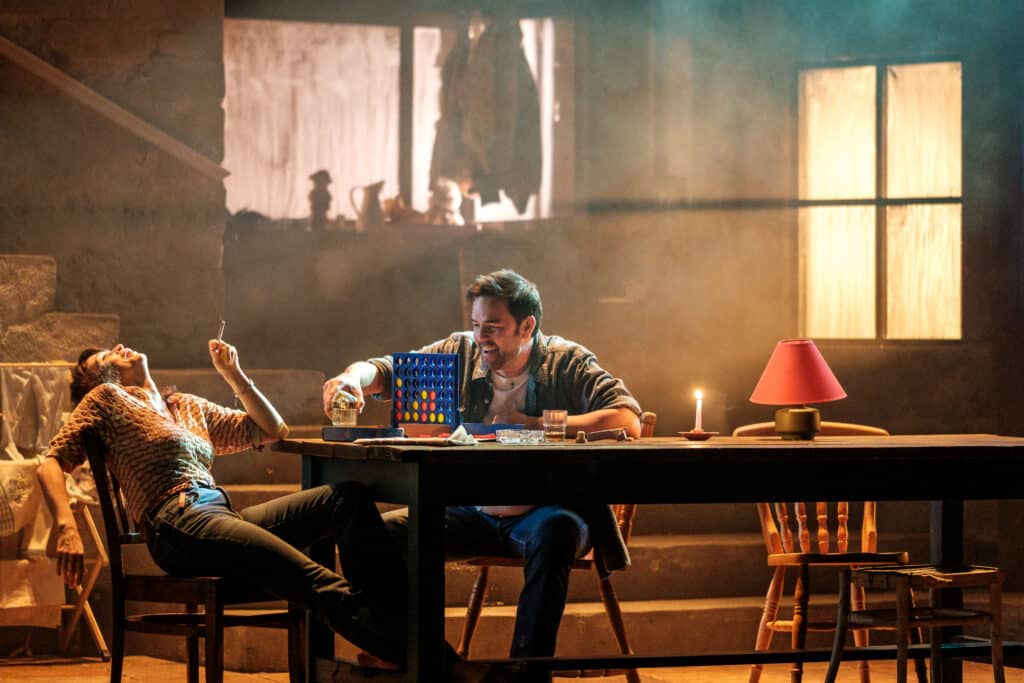
Have you had to approach the play any differently from its West End and Broadway run?
It probably just has a little bit of a different flavour. I think we’re trying to keep as true to the source material as we can. But there is, I mean, it’s a cast of 20 or so people. It’s a huge collaboration. So I have never seen the West End or Broadway productions of it. But I think we’re trying our best to stay true to the actual story, while also trying to impress an Irish audience.
Do you feel a weight of responsibility in telling this story?
I can only speak for myself, I would say yes in considering how challenging I think the material would be for a lot of people to see it live, whether it brings up past experiences they have lived, or stories that they can relate it to. We want to do that justice. We want to do that justice, especially for an Irish crowd, and especially for it being so close to home. I think the greatest accomplishment that any of us could hear of this play is that “yeah, that’s ringing through to what really happened”. So, yeah, I would say so.
How did you approach preparing for the role of Shane Corcoran and how would you describe him?
Shane Corcoran is a very deeply troubled individual. He’s a pawn in a game of kings, and he thinks he’s a king, but really, we see how scared he is on the inside and how truly vulnerable anyone could have been during that time. And even a young person in general, [we see] how easy it is to get snatched up by circumstance. I think Shane is looking for a cause, something to dedicate his life to, and he’s found himself in this particular circumstance that he has decided this is what he wants to do, and this is how he’s going to live his life. So you see how that plays out then.
Approaching playing Shane Corcoran, he’s a very charismatic character. He’s very lively, but he’s very deep. There are a lot of layers to him. And it was a lot of listening. I tried not to talk as much, especially when we were in the rehearsal room. I wanted to hear what other people thought. I wanted to hear their thoughts on the character and possible suggestions, because I felt doing it through one lens wasn’t going to be enough – wasn’t going to do it justice. So, I needed as many people to kind of pitch in for that as possible.
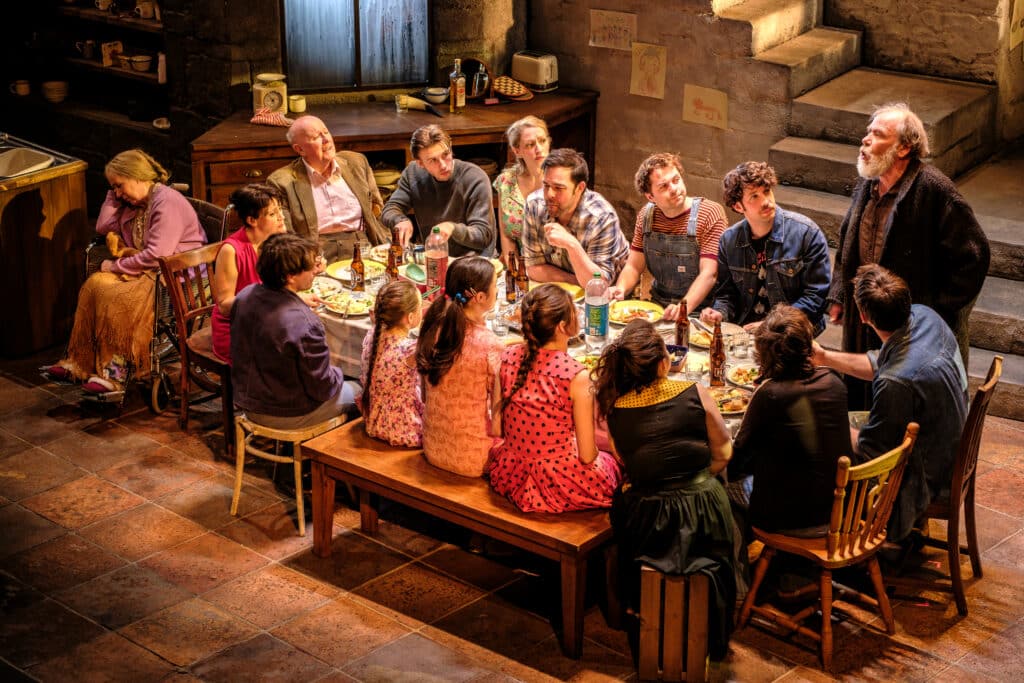
It must be enriching working alongside such a talented ensemble cast. What have you learned from your fellow cast and crew members?
My God, that’s a great question. To be honest, there’s so much experience in that room and on that stage, and I spend a lot of my time watching, lot of time listening. If I’m talking, I’m not doing the right thing. It’s such a phenomenal cast to be surrounded by a lot of teachers, [and have] a lot of mentors around me, whether or not they they want to think of themselves in that way. I’m trying to be a sponge as much as I can and just soak it all up.
Has the unpredictability of acting alongside a live baby, a live goose, and a live rabbit thrown up any headaches so far?
Well, excuse the profanity, but the goose keeps shitting everywhere. So we’re dealing with that, and I think it keeps biting Joe as well on stage. But I think it’s all a part of it. You have those risks with being live theatre, but I think it also adds different elements for a lot of people – including the cast – that just lets it ring true, lets it be beautiful. So unpredictable? Yeah, I’d say so.
So the goose is the trouble maker?
The goose is definitely, aul Margaret Hatcher. She’s definitely a bit of a nuisance, but ah God she’s lovely as well. So she has her moments.
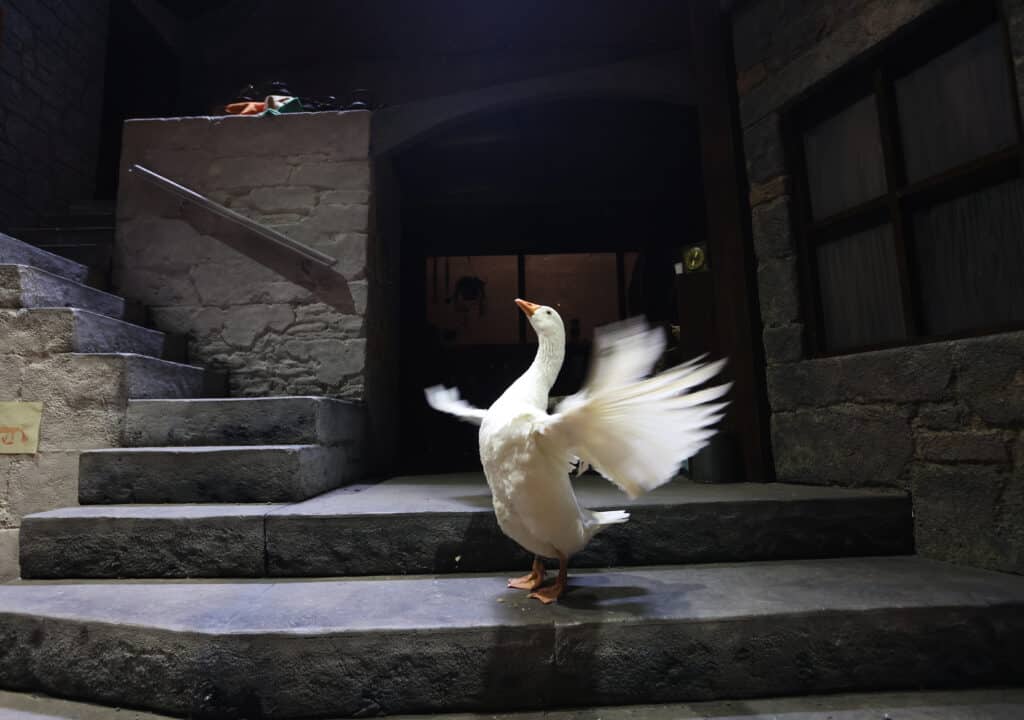
How would you describe The Ferryman in three words?
I would say The Ferryman is deep, it is a behemoth of a play, and it’s very exciting. Definitely more than three words.





